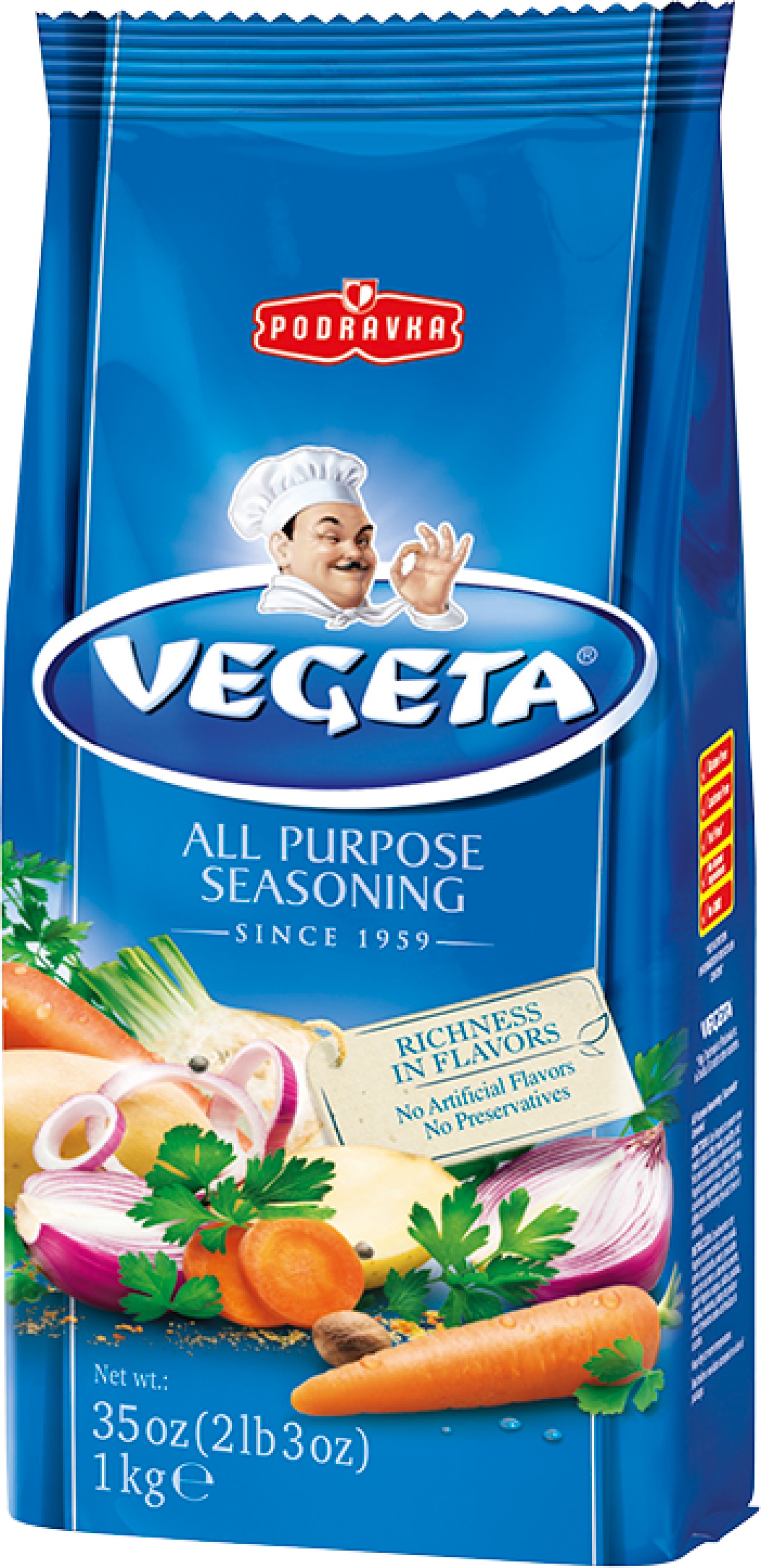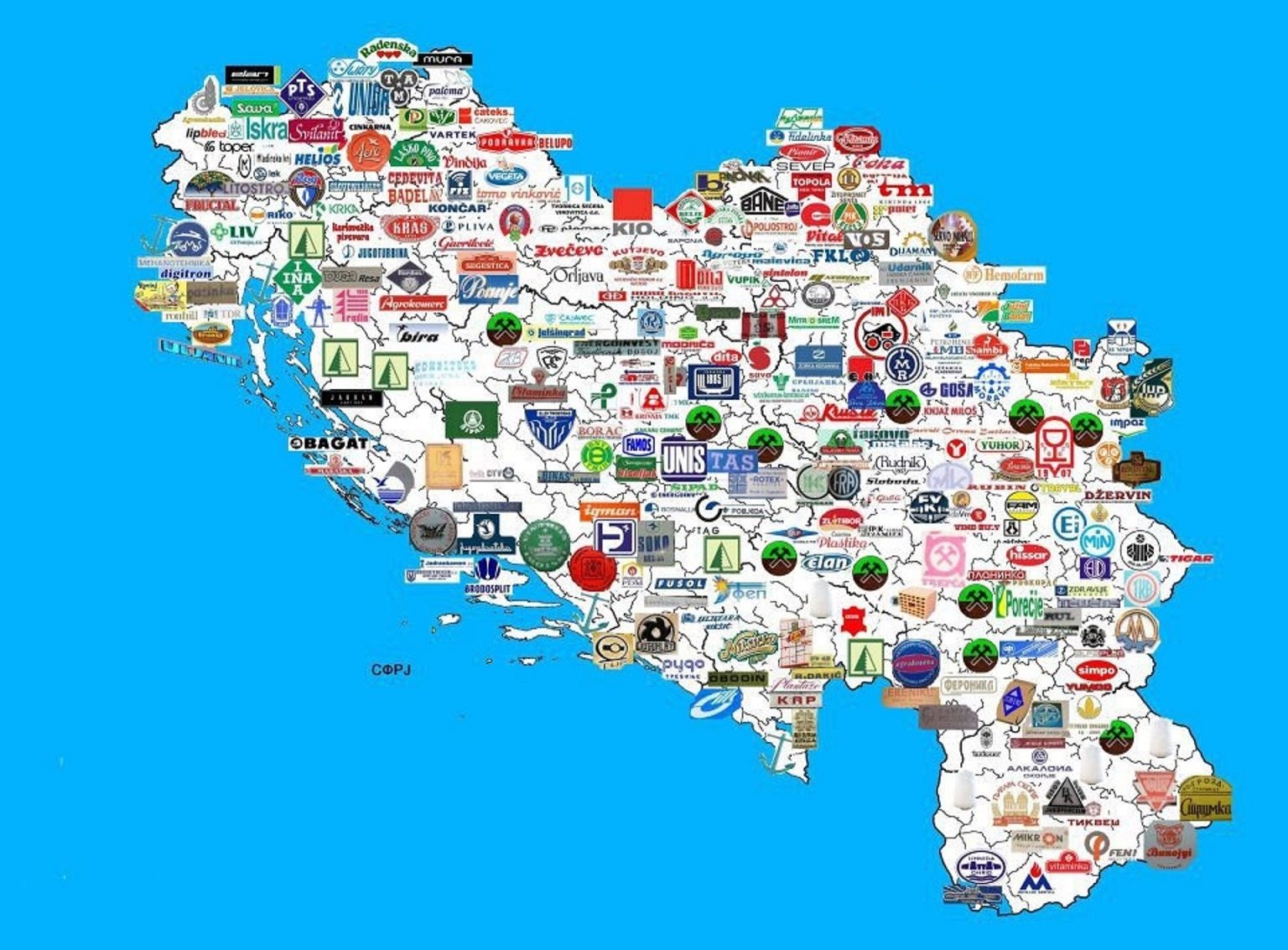Strongest Croatian Brands Survived and Succeeded After Independence
January 4, 2020 – A map showing production across the former Yugoslavia details the sustained prosperity of many Croatian favourites as some of the strongest Croatian brands are shown not only to have survived but have succeeded following independence
Media across Croatia, Bosnia and Serbia have surprised younger readers and reminded older readers with the publication of a map detailing production in the former Yugoslavia. While this trip down memory lane has caused a range of reactions across the countries of the former republic, looking at the map from a purely Croatian perspective gives some enlightening information. Namely, many of the strongest Croatian brands visible on the map are recognisable today. Some of the strongest Croatian brands not only survived independence but have since grown.
Bajadera - one of the most popular products made by Zagreb-based chocolate and confectionery manufacturers Kraš
Zagreb-based chocolate and confectionery manufacturers Kraš, Požega-based confectionery and drinks manufacturers Zvečevo, oil company INA, Koprivnica-based food company Podravka and Koprivnica-based pharmaceuticals company Belupo, vitamin drink Cedevita, Varaždin-based food company Vindija, Vukovar shoemakers Borovo, Varaždin clothes designers and manufacturers Varteks and multi-use condiment Vegeta are just some of the strongest Croatian brands that are present on the map. You are still likely to see these brand names on many Croatian high streets. Some have succeeded in reaching further into international markets since Croatian independence. Croatian-made condiment Vegeta is sold all over the world
Croatian-made condiment Vegeta is sold all over the world
Of course, not every brand visible on the map of Yugoslavia production has fared so well. In their coverage of the map, Ri.portal reminds that “Some of the Yugoslav products were used by literally the whole world - ships, cars, planes, trucks, weapons and even computers were produced... However, many of these companies no longer exist or are bankrupt.”
In their coverage of the map, Bosnian website Klix reminds that Croatian shipyards Uljanik in Pula and 3 Maj in Rijeka were at world level and produced large ships for customers from all over the world. Split-based shipyard Brodosplit, which can also be seen on the map, survives to this day.
Croatian vitamin drink Cedevita comes in a range of flavours
Ri.portal goes on to remember that Yugoslavia was one of only five countries in Europe at the time that manufactured its own computers. “Probably the most famous is the Galaxy, while the first computer produced was the CER-10,” they say. One of the Yugoslav computer makers on the map, popular in the late 1970s, was Digitron, based in Buje in Istria.
Sadly, not all of the strongest Croatian brands have made it until today. Famous tractor and agriculture equipment manufacturer Tomo Vinković of Bjelovar is no longer in production. Their famously-reliable machines are much in-demand on the secondhand market. Two new tractor manufacturers, Hittner doo and the Prima tractor factory still make tractors in Bjelovar.
Why Do The Chinese Really Want To Invest So Heavily In Croatia?
From the construction of Pelješac bridge to planning to build a car factory in southern Dalmatia's Neretva valley, to displaying interest in potentially rescuing the enfeebled Croatian shipyards Uljanik and 3 Maj, the Chinese are no strangers to showcasing their investment interest in Croatia.
Croatia has earned itself a less than positive reputation among foreign investors, alright, let's not be so politially correct and say that Croatia is a burning hot mess in the eyes of foreign investors. ABC has come to mean ''Anything but Croatia'' in foreign investment circles, and many are simply bypassing the country entirely. That's not to talk about local, Croatian investors who have been dragged through the proverbial mud twice or even thrice the amount. Given the somewhat depressing statistics, just why are the Chinese suddenly so deeply interested in investing such huge sums of money in Croatia?
While many have welcomed the money-laden offers of the Chinese, others have remained cautiously optimistic, and some have made no qualms about being vocal in their dismay at the thought of the Chinese coming and ''taking over'' by investing heavily in Croatia's many pressing strategic projects. The motives that push the Chinese towards closer and closer ties with Croatia tend to end up as mere hearsay and solacious gossip in the comment sections of various portals, but what do the experts believe?
As Novac/Marina Karlovic Sabolic writes on the 12th of April, 2019, the Chinese are truly incredible people. They come to Croatia every ten years, and the Croats immediately forget about all of the Chinese "bofl" goods they've spent their lives purchasing and throwing away. They suddenly become blissfully unaware of the dreaded "Made in China" mark that everyone gets so sick to the back teeth of seeing plastered all over basically anything. Instead, their innermost desires display blurry images of an ailing Uljanik, of Tito's rotting memorial complex in Kumrovec, of Rijeka's port, and even football stadiums, Slobodna Dalmacija writes.
Does anybody bother to ask in this country what the Chinese will ask for in return, however? Entering into the dubious and somewhat unpredictable world of Croatian shipbuilding, constructing a much needed railway line and maybe rescuing a port in Rijeka all before dinner time will come with a price tag, and likely a hefty one. The situation when that bill inevitably arrives is one that tends to be what fills the militant online naysayers with fuel, and dread.
''Don't be afraid, China will not demand that the Communist Party be established in Croatia or that it rules the country,'' prof. Dr. Vlatko Cvrtila, one of the most prominent Croatian geopolitical experts, stated. He also added that in its long-term strategic plans, China really doesn't have any sort of idea of introducing a single-party system in the countries in which it invests its money. Their interest, claims Cvrtila, is of quite another nature.
''The Chinese don't invest because they have a lot of money and they want to go around giving it out. There's no philanthropy in international relations. All they invest in is related to their global strategy of creating influence and linking the Eurasian world in a continental way. By investing in infrastructure, ports, roads and railways, they enable their goods to reach their customers more easily,'' says Cvrtila.
Such an approach, he points out, is legitimate for a country that has boasts such great economic potential at this time like China does. Their mega-project, the Silk Road, which would increase the possibility of land transport, aims to reduce overall dependence on maritime traffic restrictions.
Cvrtila notes the US administration's estimates and warnings that China will one day turn its massive economic influence into strategic power as well. This is something that United States, which is already competing with Russia, doesn't think well of. However, China is now quietly placing all of its cards on the economic side of the story.
''In order to maintain its economic growth, China must have a market. In infrastructure projects, they actually make the market more widespread. China can't stop, while it's riding the bike it needs to rotate the pedals. The Chinese are present everywhere where they can create prerequisites for the distribution of goods. In Greece, they're in the ports, in Montenegro, they're dealing with the construction of a motorway, in Croatia, they're building Pelješac bridge. This is a win win situation for everyone, because in the long run, any investment in infrastructure can improve a country's economic performance,'' says Cvrtila.
China has, therefore, created the 1 + 16 formet in Southeastern Europe where its usually large-scale investments help countries that otherwise don't have a lot of foreign investment.
''Europe has survived a difficult financial crisis and there is no "free finance" which would enter JI Europe. China's investment is actually beneficial for Europe, because along with China, the European Union has developed non-competitive but increasingly strategic economic relations, realising in time that they [the Chinese] can contribute to its economic growth,'' emphasises Cvrtila.
Croatia, according to him, is fortunate because it is strategically quite well positioned: it is closer to the heart of Europe than it is to Northern Europe. And, de facto, it is located at the intersection of the roads between the East and the West.
Unfortunately, Croatia hasn't used its geostrategic advantage yet. LNG terminal stands, as do the new train lines. It's also important to revitalise the Port of Rijeka so that Croatia can profit in the fast transport of goods to European consumers. We don't have our own investments, Europe has no capacity anymore, which is why the Croatian Government is seriously considering deals from China,'' concludes Cvrtila.
Therefore, there's no need for Croatia to be afraid of the Chinese, but rather actually use them for its own interests.
Make sure to follow our dedicated business page for more information on Chinese-Croatian relations, Chinese business plans in Croatia, and much, much more.
Click here for the original article by Marina Karlovic Sabolic for Novac/Jutarnji
Chinese Reveal Interest in Croatia's Enfeebled Uljanik and 3 Maj Shipyards
As Poslovni Dnevnik writes on the 10th of April, 2019, Chinese interest continues to grow as the Republic of Croatia and China opened a new, ambitious chapter of economic and trade relations on Wednesday, deepening their relationship even more after talks between the two prime ministers who both considered the talks to be a "fruitful turnaround".
Relations between Zagreb and Beijing initially reached a higher level after the Chinese company China Road and Bridge Corporation was chosen as the much anticipated Pelješac bridge builder.
The two countries readily signed six agreements, which cover the segments of rail, agriculture, digital technology and tourism. Four more will be signed on Thursday and Friday down in Dubrovnik at the 16 + 1 summit.
"We have signed a memorandum on a much more serious, transparent and easier cooperation between companies, on the transfer of capital from China to Croatia, as well as a two-way transfer, and the possibility of capital from Croatia being invested in China. This opens up the possibility of trust and a much stronger and more serious transfer, investing and manufacturing, and we've been able to talk about other large-scale structuring projects, especially given the fact that a Chinese company is building Pelješac bridge,'' said Croatian Economy Minister Darko Horvat for RTL.
He also noted that at this point in time, Croatia has a bilateral economic exchange with China which is somewhere close to the level of a billion euros, in a much larger deficit on the Croatian side.
Horvat also confirmed that Chinese companies are offering to be the ones to construct the Rijeka-Zagreb line.
"This project has to happen, the Chinese side has shown its interest. Whether that is going to come in the shape of a long-term concession agreement or in another model... Minister [Oleg] Butković is engaged in very intensive negotiations [on that matter] at the moment,'' stated Horvat.
In conversation with RTL, Horvat also revealed that they now have a clear signal that there is interest from the Chinese side to invest in Croatia's burdened shipyards, Uljanik and 3 Maj, in Pula and Rijeka.
"The real conversations are just starting, and I'm sure we will have some concrete figures tomorrow,'' he added briefly.
When asked whether or not Chinese could end up becoming the strategic partner needed to finally save Uljanik, the economy minister simply said that nobody was trying to hide the fact that the Chinese had been called upon.
Make sure to follow our dedicated business and politics pages for more information on the blossoming China-Croatia relations, why some remain suspicious, why the European Commission has raised its eyebrows at the fact that a Chinese company is building a bridge funded primarily with EU money, and much more.


